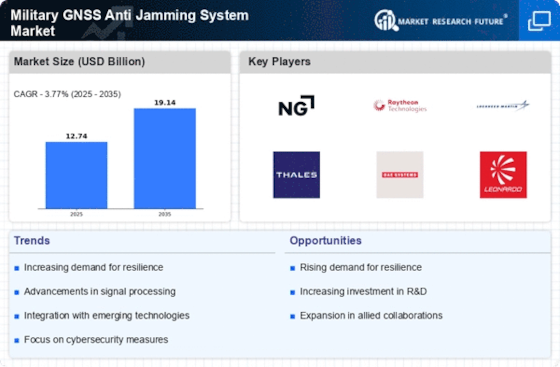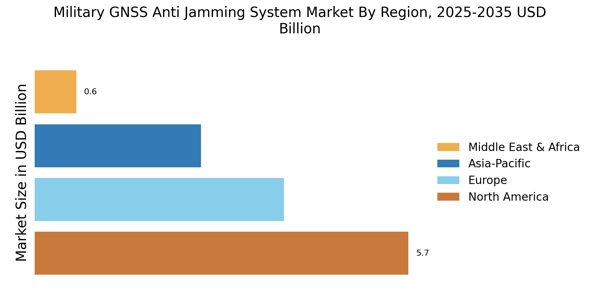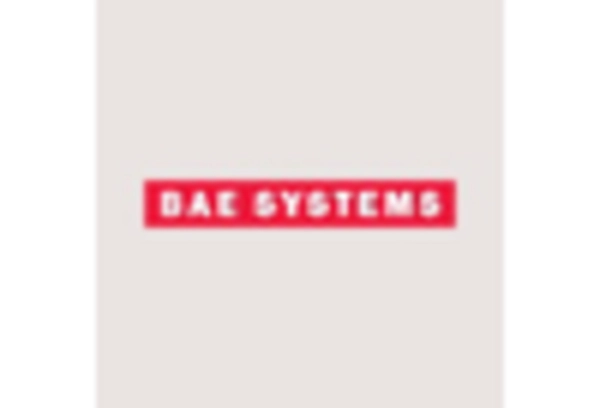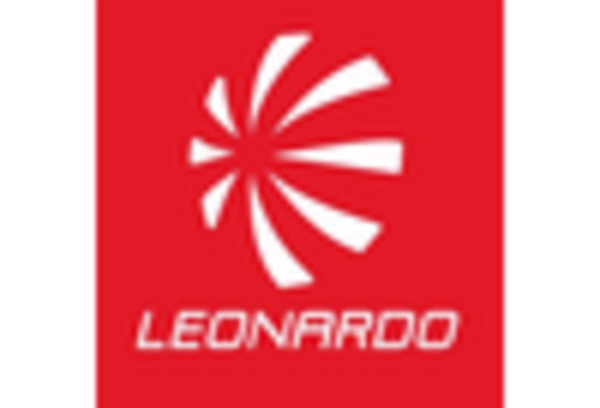Rising Geopolitical Tensions
Regulatory and Policy Support
Regulatory and policy support for defense modernization initiatives is fostering growth in the Military GNSS Anti Jamming System Market. Governments are increasingly recognizing the need for secure navigation systems to enhance national security. Policies aimed at upgrading military capabilities often include provisions for advanced anti-jamming technologies. For instance, defense procurement programs are prioritizing systems that can ensure operational continuity in electronic warfare scenarios. This supportive regulatory environment is likely to stimulate investments in the Military GNSS Anti Jamming System Market, as defense contractors seek to align their offerings with government mandates.
Technological Advancements in GNSS
Technological advancements in The Military GNSS Anti Jamming System Industry. Innovations such as improved signal processing techniques and the integration of artificial intelligence are enhancing the effectiveness of anti-jamming systems. These advancements enable military forces to counteract jamming attempts more efficiently, ensuring uninterrupted access to critical navigation data. The market is witnessing a shift towards systems that can operate in contested environments, with a projected growth rate of approximately 7% annually over the next five years. This growth underscores the increasing reliance on advanced technologies within the Military GNSS Anti Jamming System Market.
Increased Demand for Autonomous Systems
The rising demand for autonomous systems in military applications is a key driver of the Military GNSS Anti Jamming System Market. As unmanned aerial vehicles (UAVs) and autonomous ground vehicles become more prevalent, the need for robust navigation solutions that can withstand jamming attacks is critical. These systems require reliable GNSS signals to operate effectively, making anti-jamming technologies essential. The market for military UAVs alone is expected to reach USD 70 billion by 2026, highlighting the substantial investment in autonomous technologies. This trend suggests a strong correlation between the growth of autonomous systems and the Military GNSS Anti Jamming System Market.
Emerging Threats from Electronic Warfare
The emergence of sophisticated electronic warfare tactics is a significant driver of the Military GNSS Anti Jamming System Market. As adversaries develop advanced jamming techniques, military forces are compelled to invest in countermeasures that protect their navigation systems. The increasing complexity of electronic warfare environments necessitates the deployment of cutting-edge anti-jamming solutions to maintain operational superiority. Reports indicate that the electronic warfare market is projected to grow to USD 30 billion by 2027, reflecting the urgency for military organizations to enhance their capabilities. This trend underscores the critical role of the Military GNSS Anti Jamming System Market in addressing contemporary security challenges.

















